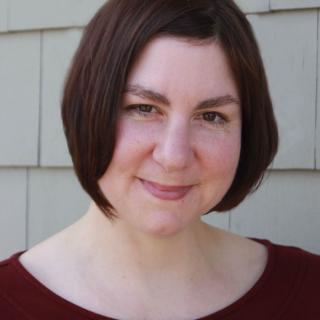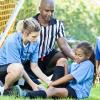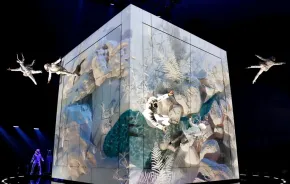
Photo:
Kelly McDonald performing during 'Luzia.' Photo credit: Laurence Labat; costumes: Giovanna Buzzi (2016 Cirque du Soleil)
Look for Seattle native and acrobat Kelly McDonald up in the air when Cirque du Soleil’s Luzia opens March 31 at Marymoor Park in Redmond.
Billed as “a waking dream of Mexico,” Luzia explores themes inspired by Mexico’s myriad cultures, history and mythology. The title fuses luz (light) with lluvia (rain); the resulting show is the first time a Cirque big top performance features water. (Fun fact: Some performers will wear specially designed soles on their shoes to accommodate their aquatic-oriented acts. That's just one of the more than 1,000 costume elements Cirque says it created for the show.)
For McDonald, the Redmond-based show is a homecoming, since she travels, trains, performs and lives with her fellow circus performers most of the year. Now 32, McDonald grew up north of Green Lake and graduated from Roosevelt High School in Seattle and the University of Washington (she has a degree in business and a certificate of study in international business and studied in Spain for a year). Her family still lives in Seattle.
McDonald started gymnastics at age 5 and continued through college, competing nationally. She nabbed the title of Junior National Olympic Champion in 2002 in the all-around, floor exercise and balance beam events. She took up acrobatics after graduating from college; she’d heard about an audition for the Le Rêve show at the Wynn Hotel in Las Vegas. She landed the gig and performed eight years before joining Cirque in 2015.
During Luzia, look for McDonald as a flying acrobat in the Adagio act, which she helped create over the course of seven months, training four hours a day, six days a week. In the show, McDonald also appears during a group pole dancing number and is an understudy for a solo dance trapeze routine.
For those attending the show, McDonald suggests checking out the giant papel picado curtain on stage at intermission; see if you can spy any of the show’s characters. Also, keep an eye on the giant disk on stage, which can transform from the sun to the moon to the Aztec calendar.
Read on for what McDonald has to say about her upcoming show and running away to the circus.
Circus arts for kidsNote: Many places require advance signed parent permission for participation. Gig Harbor Aerial Fitness classes focus on adults but kids from age 10 can take aerial arts classes on fabric and rope. Georgetown’s SANCA general circus arts classes start at age 2 (with parent), flying trapeze from age 6. Circus arts (depending on age) include tumbling, wire walking, juggling, trampoline, rolling globe, aerial arts and acrobatics. Other classes focus on a specific apparatus or skill, like unicycle or trampoline. Full- and half-day summer camps from ages 6-17 (including older-kid specialties like clowning and object manipulation and equilibristics, e.g. unicycle and spinning plates.) Some school-break camps, too. SODO’s Emerald City Trapeze offerings start at age 5 with classes in flying trapeze (6 and up), aerial arts (youth aerial skills for ages 10 and up; other 12-and-up options), acrobatics (age 5-9), Cyr Wheel (12 and up) and conditioning (12 and up). Full- and half-day circus arts summer camps include flying trapeze, trampoline, tumbling and aerial arts from ages 5-17. Greenwood’s Versatile Arts offers aerial arts classes on rope, silks, trapeze and single-point sling and conditioning and flexibility for ages 11-17, plus specialty classes in flexibility and contortion along with some tumbling. Wallingford’s Om Culture full- and half-day summer camp for ages 6-12 focuses on silks skills, obstacle courses, tumbling, and gymnastics — plus DJ dance time, singing/drumming and free play — with occasional guest teachers for things like hula hooping and juggling. After-school classes for grades 1-6 with activities similar to summer camp. Camp ZinZanni runs weeklong summer camp circus arts basics and scene development, covering acrobatics to Shakespeare, aerial silks to clowning for ages 5-17 under Teatro ZinZanni’s spiegeltent. (The camp is on hiatus for summer 2017 as Teatro ZinZanni looks for a new location.) |
You’re living out a dream every kid has at least once: to run away to the circus. Is it as crazy and fun as it sounds?
It absolutely is. … At first, in Las Vegas, I thought: ‘What the heck. I’ll do this for a year and then get a ‘real job.’ … And I just fell in love with performing. … Joining Luzia was when I really ran away to the circus. I’m under a big top. I get to perform in front of 2,600 people every night. … And we’re a family on the show. I’m really living the circus life, going city to city. And I get to see best-in-the-world performers.
What did your parents say when you told them you were joining the circus — after earning a college degree in business no less?!
They were actually thrilled because they can travel and see me perform in different places around the world. … Maybe they were shocked to each other, but they never said that to me! I don’t think they imagined I’d be doing it as long as I have! [But] I think it actually made sense to them because of my passion for gymnastics. … I was shy growing up so I think that was the biggest surprise — my performing in front of thousands of people.
During your act in Luzia, the porters — the guys who toss you around the stage — hold you by your hands and feet, turning you into a human jump rope. Eek! What do you get to do in this show that you’d never done before?
As a gymnast, I got myself in the air. The biggest difference now is that the porters are getting me into the air. I’d never worked with three porters before. We do a lot of tricks that don’t necessarily have a name … like a throw with three twists or a horizontal throw across the stage.
What’s something that you wished the audience knew about Cirque?
I hope they understand all the time and the love that’s put into it.
Do you ever stop being scared about being dropped or falling in an act?
Yes … because the scariest part is developing an act [not once it’s onstage]. When we’re learning, we do lots of falling. It’s about learning from it and trying it a different way.
What would you tell a kid who wants to be in the circus? What would you tell that kid’s parents?
I’d tell the parents: ‘It’s OK.’ And I’d tell kids to follow their passion and find what they want to do in the circus. It’s hard work, but they can continue to learn new things and have new opportunities. It can be your dream come true.











